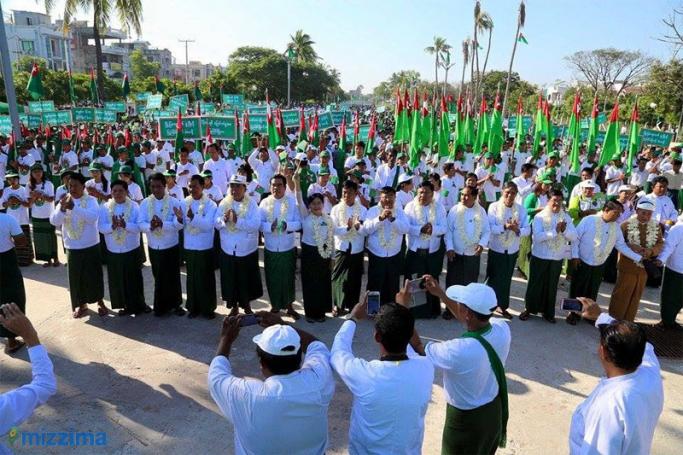Myanmar’s parliamentary election slated for November 8, 2015, is fundamentally flawed, depriving Myanmar of their right to freely elect their government, Human Rights Watch said today, the 4 November.
The electoral process is undermined by systematic and structural problems including the lack of an independent election commission, ruling party dominance of state media, the reservation of 25 percent of seats for the military, discriminatory voter registration laws, and mass disenfranchisement of voters in some parts of the country.
“Long lines of voters on November 8 won’t make these fundamentally flawed elections free and fair,” said Brad Adams, Asia director at Human Rights Watch. “Burma’s parliamentary election is the key test of the military-backed government’s commitment to reforms and to building a democratic state. This election, however, suffers from critical flaws, such as a biased election commission, a ruling party-dominated state media, and laws and policies preventing Rohingya and others from voting and standing as candidates.”
The election will be Myanmar’s first contested national polls since 1990, when the military annulled an overwhelming victory by the opposition National League for Democracy (NLD).
Many internationally recognized elements for a free and fair election are missing from Myanmar’s election process as detailed below, Human Rights Watch said. International standards include the rights to freedom of expression, association, assembly, and movement; candidates and voters participating in an environment free from violence, threats and intimidation; universal and equal suffrage; the right to stand for election; the right to vote; the right to a secret ballot; and freedom from discrimination. Enforcement of these rights requires an election administration that acts in an effective, impartial, independent, and accountable manner; equal access for candidates and political parties to state resources; equal access for candidates and political parties to unbiased state media; and an independent and impartial mechanism to resolve complaints and disputes.
One key concern is the lack of independence and impartiality of the Union Election Commission (UEC), both at the national and local levels, Human Rights Watch said. Chairman U Tin Aye, a former army general and Member of Parliament from the ruling Union Solidarity and Development Party (USDP) who stepped down immediately before taking the position of UEC chairman, has expressed views demonstrating a lack of impartiality. In June 2015, he said, “As a chairman, I am not supposed to have attachment to the party…. I have an attachment, but I don’t put it at the forefront of my mind…. I want the USDP to win, but to win fairly, not by cheating.”
In April, he defended the constitutional provision guaranteeing 25 percent of parliamentary seats to serving military officers, claiming the quota was needed to avert a future coup. While promising that the 2015 elections would be free and fair, he said they would be conducted in “disciplined democracy style,” using rhetoric closely associated with past Myanmar military governments. On March 27, during the annual Armed Forces Day parade in the capital, Naypyidaw, Tin Aye wore his military uniform during the ceremony, saying: “I would give up my life to wear my uniform. I wear it because I want to. That’s why I wear it even if I have to quit [the UEC] because of that. But there is no law saying I should resign for wearing [my] uniform.”
The election procedures also lack appropriate mechanisms for resolving complaints, Human Rights Watch said. Complaints will be brought before ad hoc tribunals set up under the UEC, with a panel of three arbiters comprised of election commissioners. But in violation of international norms, complainants can only appeal a tribunal’s final decision to the UEC, whose ruling is final and made without judicial oversight.
The counting of ballots at the village level is also a matter of concern, Human Rights Watch said. Counting at the village level instead of mixing ballots with other villages and counting at the district or township level could lead to threats and retaliation against specific villages by the authorities on the basis of their vote.
“The sight of mass campaign rallies is a positive sign, but they don’t make up for an electoral system that systematically favours one party over others,” Adams said. “The system lacks an independent and impartial process to resolve complaints and major controversies once the voting has ended.”
You are viewing the old site.
Please update your bookmark to https://eng.mizzima.com.
Mizzima Weekly Magazine Issue...
14 December 2023
Spring Revolution Daily News f...
13 December 2023
New UK Burma sanctions welcome...
13 December 2023
Spring Revolution Daily News f...
12 December 2023
Spring Revolution Daily News f...
11 December 2023
Spring Revolution Daily News f...
08 December 2023
Spring Revolution Daily News f...
07 December 2023
Diaspora journalists increasin...
07 December 2023
EUR 8 million to support inclusive and sustainable trade growth in Myanmar












